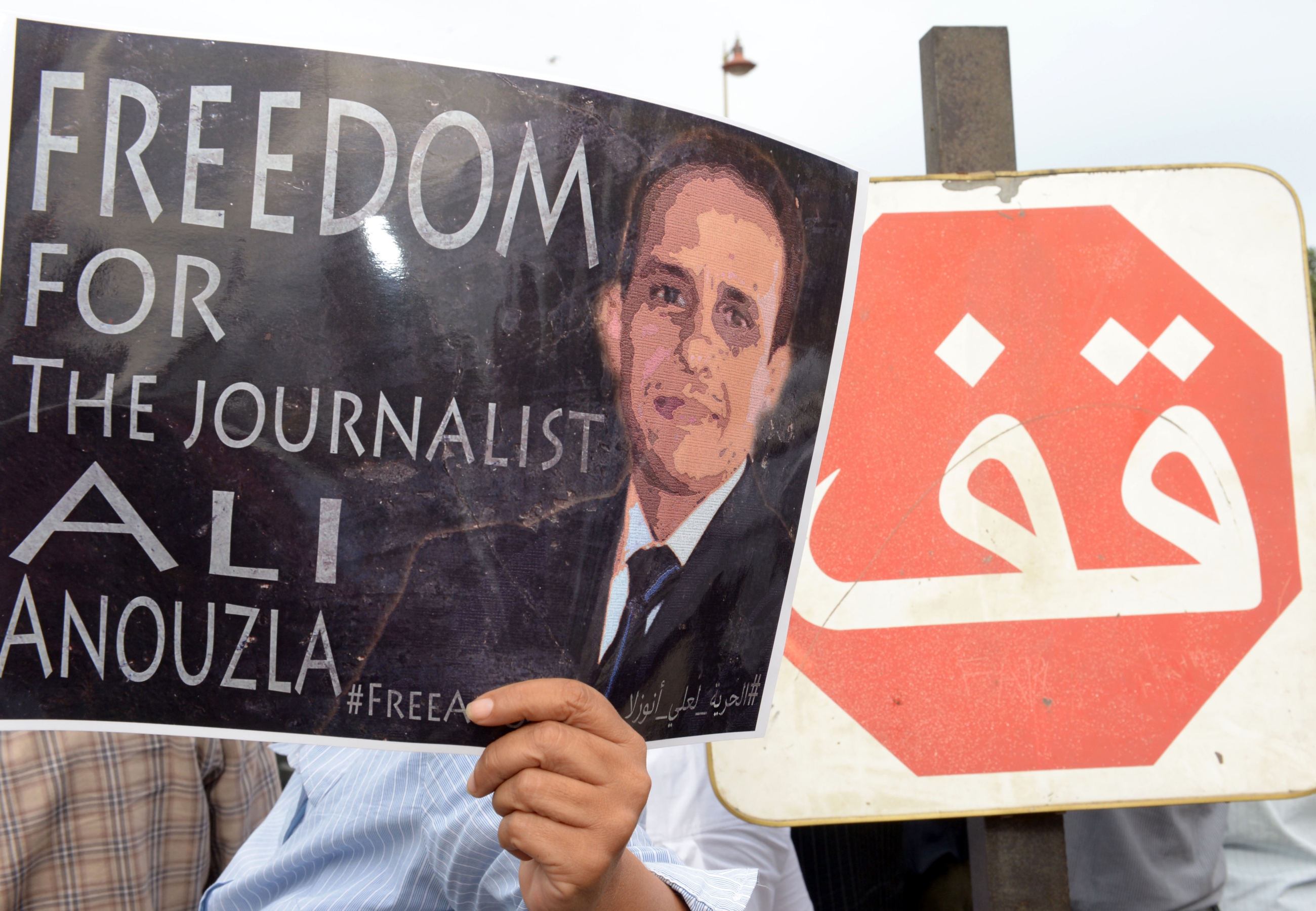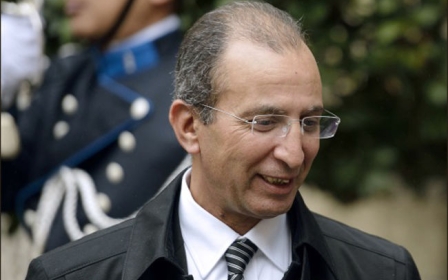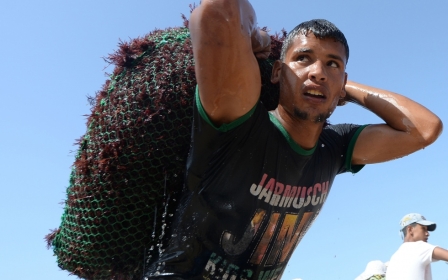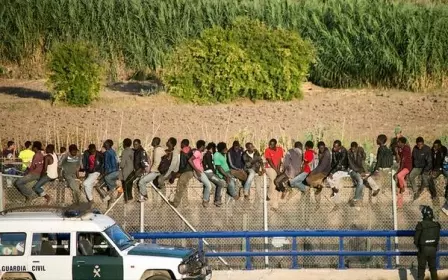A free press in Morocco? Up to a point, Lord Copper

The pendulum which has carried Morocco’s journalists from relative freedom to severe repression and back again in recent years is moving decisively towards a new period of pressure. It runs counter to a climate of political reform since the Arab Spring, but the truth is that Morocco’s editors and reporters are today facing a troubling series of subtle and not so subtle methods to muzzle them.
It is grimly reminiscent of the period which followed a brief opening of press freedom in Morocco in the late 1990s towards the end of King Hassan II’s reign. Many of Morocco’s best and brightest journalists who started a series of edgy, investigative outlets left the country, often under financial and personal pressure, to continue reporting freely from abroad. Or they abandon the profession altogether.
Those who stayed – as has been well-documented by Freedom House and Reporters Without Borders - have struggled to report stories that cross red lines, the situation of the Sahrawi or the Polisario Front in the Western Sahara, any criticism of the King or question the use of his budget.
Foreign journalists have difficulties, too: in 2011, Moroccan authorities rescinded accreditation for all Al-Jazeera journalists in the country following the outlet’s coverage of Western Sahara, according to Human Rights Watch. Spanish daily El País was banned twice in 2012 for publishing a cartoon of the king and coverage of a book that was critical of him, according to Freedom House.
This means, say media observers and journalists, that during what the government touts as a time of major reform in Morocco following constitutional changes in 2011 - changes which have allowed the monarchy to survive the Arab Spring intact - Moroccans have less access to balanced, independent reporting on critical issues like corruption and public spending.
Ministers and civil society leaders alike complain about the lack of reliable information, though they dispute the cause.
Mustapha al-Khalfi, Morocco’s Minister of Information and a former journalist, does not discredit those who claim there are issues within the country’s journalism sector – or the country in general. He is one of several ministers that tell MEE over a week-long visit to Rabat that, in a “third way” between revolution and staying the status quo, the country is ‘reforming’.
“Unfortunately,” said Idriss Azami al-Idrissi Minister of Budget, “we have a media here who doesn’t report on government effectively.” The current reforms, he said, “need explanation . . . we can debate, but it must be reported.”
“We don’t know what is good and real information from fake . . . we have very big doubts,” said Mohammed al-Boukili, a senior member of the independent Moroccan Association of Human Rights. “The real information doesn’t get to the simple reader who is in the rural areas. It’s not accessible. Journalists also don’t have figures or statistics of things. Even us, we don’t have it.”
One of the major consequences of the country’s weakened media?
“It contributes to Moroccan citizens’ basic estrangement with politics,” said Aboubakr Jamaï, the editor of the French-language version of Morrocco’s Lakome.
Jamai was part of the circle of journalists who rose to prominence in the late 1990s. They were subversive, he said, because they weren’t only writing opinion pieces. They were reporting news and views. “We were doing journalism. We were meeting people, interviewing people, writing what we learned,” he said.
While ministers were regularly attacked in the media, giving the illusion of a free press, the monarch was largely left untouched, something Jamai and his colleagues aimed to change.
“‘You want to call the shots?’” he said they asked of the King. “‘At least intellectually, we will hold you responsible.’”
The result in Jamai’s Le Journal, one of a handful of outlets where young journalist cut their teeth in the late 1990s, were stories that broke major political taboos including publishing an interview with the leader of the Polisario Front, a liberation movement led by the Sahrawi, the indigenous inhabitants of the Sahara, which has been fighting for recognition of the disputed Western Sahara as their own independent state for more than 30 years. The Moroccan leadership holds that the 266,000 square-kilometre territory is part of their country. Le Journal also pushed red lines, printing a letter alleging that a former prime minister had been involved in a plot to assassinate King Hassan II.
“It was like, ‘Oh my, what are they going to talk about this week?’” said Michael Willis, King Mohamed VI Fellow in Moroccan and Mediterranean Studies at Oxford University.
Over the next decade, Jamai and his publications were locked in a publishing-punishment cycle with Moroccan authorities. In 2000, Le Journal was banned after an interview with the head of the Polisario Front was published. Then in 2001, it was reopened, along with its Arabic counterpart Assahifa, under new names, only to be hit with regular lawsuits. Advertiser support was unstable as various business people boycotted the publications.
A final blow came with a $360,000 (USD) defamation suit in 2006. Claude Moniquet, head of the Brussels-based European Strategic Intelligence and Security Center, said Le Journal Hebdomadaire (its new name) had defamed him with an article that suggested that his think tank’s report on the Western Sahara had been funded by the Moroccan government.
When the Rabat Court of Appeals upheld the ruling, Jamai, unable to pay the penalty, resigned from his publications and left the country.
“I was forced out,” he said in a phone interview from France.
He has had some short stints since then, editing and publishing Moroccan journals from afar including the French-language version of Lakome, but Jamai has largely stuck to academia and consultancy jobs. Still, the thought of running an editorial meeting in person, in Morocco haunts him.
“I miss it so much that I try to forget it actually,” he said.
♦♦♦
While Morocco’s press freedom index has ebbed and flowed since King Mohammed VI took the throne in 1999, there are two indirect methods by which the media are controlled.
Either individual journalists are charged with crimes related to their professional or personal lives, dragging their names and credibility publicly through mud.
Or advertisers – who rely on the king’s permission to run their businesses - are pressured to pull their money from publications that report red-line crossing news, thus making it difficult for the outlets to survive financially.
Sometimes, said Willis, the advertisers, worried about getting contracts which need the monarch’s seal of approval, will apply control to themselves.
“Because the Moroccan system is so pervasive,” Willis said, “people almost do it themselves. They don’t even need to receive the phone call.”
And there is one further method, said Touafik Boucherine, editor of the daily 40,000-circulation national newspaper Al-Akbar Al-Youm: punishing confidential sources.
“This is the most dangerous one,” Bouacherine said, “because the spirit of journalism is what gets the stories.”
He works from a 17th floor office in Casablanca with opaque wrap-around windows. He can’t see out, no one can see in, and he never knows who exactly is knocking at his door.
In 2012, Akbar Al-Youm published a story based on documents leaked by confidential sources in the Ministry of Finance which showed that the former finance minister, Salaheddine Mezouar, and the national treasurer, Nourredine Bensouda, authorised salary bonuses for one another.
The story sparked an announcement of an inquiry into the allegations from Minister of Justice Mustapha Ramid – a member of the PJD party that came to power on an anti-corruption platform in 2012.
On a late afternoon two years later, Bouachrine said the only investigations opened since the story have focused on his paper and the two whistleblowers. After Boucherine refused to give up the identity of his paper’s source to investigators, he said they went the paper’s phone records and traced calls back to two Ministry of Finance employees, Abdelmajid Louiz and Mohamed Reda, who were charged with “divulging professional secrets” and lost their jobs.
This March, Reda was acquitted. Louiz was given a two-month suspended sentence and fined $240. Mezouar, one of the two officials which the story alleges to have authorised a bonus for himself, is now Morocco’s Foreign Minister. At Akbar Al-Youm, the events have had a chilling effect on coverage.
“Many people with whom we have been working don’t take our calls anymore,” he said. “You worry about talking to people. It’s become a dangerous job not just for us, but also for our sources.”
Boucherine has also been personally targeted, he and others believe, as a result of his work. Earlier this year, he was accused of failing to pay 200,000 Euros in taxes when he bought a house in Rabat in 2007. The case fell apart when it went to court and was eventually tossed out, he said. But it ran on many of Morocco’s front pages and that, say media watchers, was the most damaging consequence.
“This is to isolate you, to slander you,” said Maati Monjib, a bespeckled Moroccan scholar and human rights activist who held court one morning in the garden terrace at Hotel Ibis. “People are more scared to lose their reputation than to be in prison.”
“It’s very painful for him,” Monjib said of Boucherine.
In the time it takes to drink a small cup of coffee, Monjib, also a history professor at the University of Rabat, gives an overview of the past 30 years in Morocco, from a wide regional perspective down to personality clashes between particular politicians.
In 1992, while in Senegal where he was in exile for eight years after his participation in Morocco’s student movements, Monjib wrote The Moroccan Monarchy and the Struggle for Power, a book which he said is still banned in the country.
In 1995, he returned to Morocco during a time of general amnesty for political activists, but was later arrested for eight days and then left Morocco helped by sympathisers. He returned in 2000, and these days, he writes for Zamane Histoire du Maroc which follows the country’s current affairs with a focus on history, considered a ‘safe’ topic, he said.
Last year, Monjib started Freedom Now, an organisation that pushed for the release of journalist Ali Anouzla. When Anouzla was released, Freedom Now expanded its focus to push for freedom of expression and the press in the country.
Despite repeated attempts to be recognised as an NGO, including filing a lawsuit with Morocco’s Administrative Judiciary Courts which the court rejected in late July, Freedom Now has yet to obtain a license to operate legally.
When asked about Freedom Now’s situation in June, Information Minister Khalfi said it was a question for the country’s Ministry of Justice, not his ministry.
“I would be intervening,” Khalfi said. “I prevent myself to speak in cases related to the court.”
Monjib said he was contacted by two intelligence agents in July who told him to stop speaking about freedoms in Morocco. He left the country several days later, but has now returned.
“I will continue with my same activities and my ideas because I respect the law and I am a citizen and I will continue my work for human rights and freedom,” he said by phone from Morocco this month.
♦♦♦
Perhaps now Morocco’s most high-profile journalist, Anouzla spent 40 days in solitary confinement after the Arabic-language news website Lakome – the Arabic-language sister to the French-version which Jamai runs - published a screen shot and link to the website of Spanish newspaper El País which linked an al-Qaeda video that attacked the king.
Anouzla was arrested on 17 September 2013 and charged with inciting and providing material support to terrorism and faced a maximum of 20 years in prison.
His supporters and Anouzla himself say the link in Anouzla’s article was merely an excuse to arrest the journalist.
“He wasn’t arrested because of al-Qaeda,” said al-Boukili, the senior member of the Moroccan Association of Human Rights. “It’s because of what he had been writing for months about the monarch.”
In the months preceding his arrests, Anouzla’s work included a report on the country’s corrupt sand quarry business, editorials that questioned the size of the monarch’s budget ($851,000 per day) and the frequency of his vacations. And finally there was ‘Danielgate’, Anouzla’s report that revealed King Mohammed VI in a deal with Spanish King Juan Carlos, had pardoned Daniel Fino Galvin, a Spanish citizen condemned to 30 years for the rape of 11 Moroccan children between 4 and 15 years old, many of whom he filmed.
Following Anouzla’s story, the king reversed his decision and Galvin was rearrested in Spain a month later.
“I was in jail for other issues, not terrorism,” Anouzla said. “I don’t criticise the king just to criticise.
Several months after his release, Anouzla took MEE up a narrow flight of stairs into Lakome’s now uninhabited, one-room office. A gaggle of empty, rolley chairs were haphazardly scattered around the room along with three computers, surrounded by nests of unplugged cords. Several giant pieces of sketch paper, covered in news agendas for days that passed months ago were strewn on the floor.
Out on bail, Anouzla said he is “half free”. He doesn’t believe he will be sent back to jail, but he can’t travel outside Morocco and, with the Arabic-language version of Lakome now blocked, he can’t publish more reports – which he is ready to write, but only from Morocco.
“I got a lot of propositions to go abroad, but I’ve stayed because I think my voice has more of an echo here,” he said. “I feel a duty to my country.”
The main problem for the Moroccan press, he said, is that it is seen as a threat to those in power.
“The government said Lakome is the opposition,” Anouzla said. “For them, anyone who criticises in opposition, but not for me. Journalism is the other power – it’s not the opposition. It’s just another power.”
♦♦♦
Just hours off a plane from China where he was on an official visit, Mustapha al-Khalfi, Morocco’s Minister of Information, greeted his guests in jeans and a button down shirt and offered to drive to a meeting spot he likes. Khalfi used to be a journalist and, as we sit down over coffee at a hotel lobby, had the air of a fellow reporter rather than a career politician.
“We have a dynamic of reforms,” Khalfi said of Morocco in 2014. It’s a place in between revolution and staying the status quo, he explains. “We call it reform within stability.”
By reforming, Khalfi and other officials refer to a body of organic laws that are intended to implement the reforms in Morocco’s constitution, made in 2011 after major protests in the country. The King appointed a commission of experts to advise him on constitutional revisions and, in July 2011, a referendum was held on the changes, reportedly passing with 98 percent of the vote. Many of those who had protested, including those in the 20 February Movement, rejected the reforms because of the changes were made by a commission rather than publicly in parliament.
A new press code is one of these bodies of law. Khalfi said the code should tackle many of the problems facing Morocco’s journalists and the sector and the process of passing the law has dragged on, largely in part because of the back and forth dialogue between the Union of Journalists and his ministry.
“We understand that some organisations said we need the laws now. If we draft them now, they will tell you, ‘You didn’t integrate us in the drafting of this law. You excluded us.’ If you take your time to integrate them, the will tell you, ‘You are late and slow.’”
After a 10-month review of the Ministry’s original draft, the union offered 100 recommendations, two-thirds of which were accepted last April, he said.
The code will insure that journalists are not jailed for their work, he said. Decisions to ban outlets will be left to Moroccan courts, not the Ministry of Information.
Further, a press council will be established that he said should give journalists a greater degree of independence from his ministry. Now, for example, to work, journalists must obtain a press card from the Ministry of Information who decides whether or not they are professionals. Under the draft press code, the press council, run by editors and journalists, would distribute these cards.
In August, Khalfi introduced a draft version of the new code, but it has not yet been discussed or passed by the country’s parliament.
When asked whether he was concerned about advertisers intentionally pulling support from outlets that crossed the red lines described by local journalists and observers, Khalfi said state funding was available for organisations struggling to stay afloat and the issue, he insisted, was not wide-spread.
“If you go to kiosk, you will see newspapers publishing issues related to Moroccan Sahara and political institutions and they have advertisers,” he said. “My answer is clear: come with me to any press store and examine the situation of the media and see what is happening on the ground.”
Others say it is exactly at the news kiosk where a problem lays.
“They print all of the same stories these days,” said Willis of Morocco’s media. “No one does cutting-edge work.”
In place of investigative journalism, he said, are “softball” stories about developments in the country’s business sector, perhaps not surprisingly the biggest backers of the country’s media operations.
“It’s all about changing – ‘It’s a dynamic country’,” Willis describes the stories. “It’s not that it’s blatant, ridiculous propaganda, but in general, it’s softball business stories.”
Consequently, sales of magazines and newspapers have declined as the literate public turns to Twitter and Facebook for independent news.
“It’s an illusion that ‘Thanks God we have Facebook and Twitter’,” said Jamai. “We are not off the hook . . . [they] can never replace a news room.”
It’s also hard, under these conditions, to find journalists willing to work for outlets that challenge the status quo and, as a consequence of losing advertisers, usually pay their employers less, say observers.
Alternatively, state-run media outlets and those launched by business people with encouragement of the monarchy have boosted incomes through preferential distribution deals – companies, for example, forced to take subscriptions of particular publications - and through ad monies brought in by their networked owners, said Monjib.
“‘Why should we follow Ali Anouzla? He was in prison’,” Monjib said journalists wonder when they consider their job options.
Journalist Hamza Mahfoud, 28, who worked with Anouzla at Lakome, said this has been “the worst year” in his short career. Mahfoud started writing in university, and then became a Moroccan correspondent for a Russian news agency and wrote about politics. He has also written for several of the country’s papers including Weekly Express which has since closed.
His involvement in the 20th February movement, he said, is problematic for his journalism aspirations.
“Some newspapers told me that they can’t work with me, ‘We can’t work with you because you are part of 20 February,’” Mahfoud said. “All journalists who write articles criticising the monarchy, the Sahara conflict or Islam, will certainly have problems."
As though rattling off a grocery list, he names, off the top of his head, his journalism heroes who have left the country or been banned from writing in recent years as he trained in the field.
He said he is afraid of being arrested if he continues in journalism, but he said there is no alternative.
“We don’t have a big choice,” he said. “We don’t want to quiet our nation. We have some hope for changing this situation.”
Middle East Eye propose une couverture et une analyse indépendantes et incomparables du Moyen-Orient, de l’Afrique du Nord et d’autres régions du monde. Pour en savoir plus sur la reprise de ce contenu et les frais qui s’appliquent, veuillez remplir ce formulaire [en anglais]. Pour en savoir plus sur MEE, cliquez ici [en anglais].




